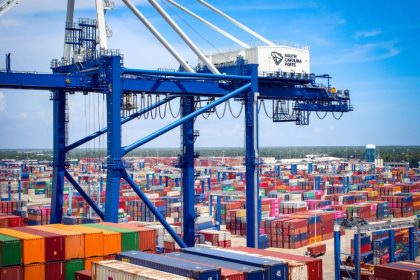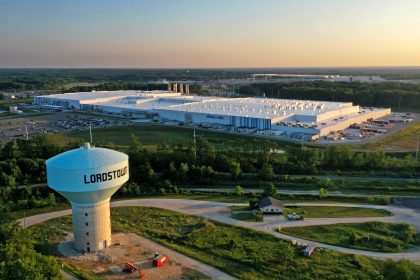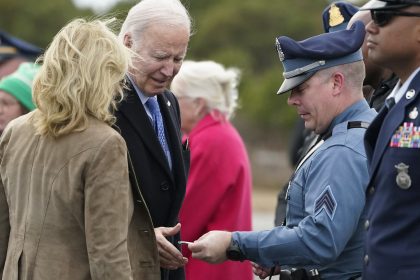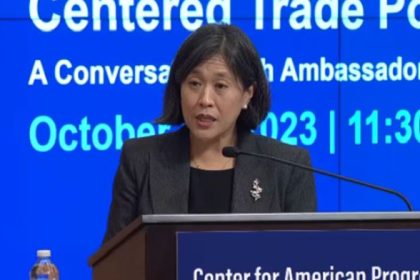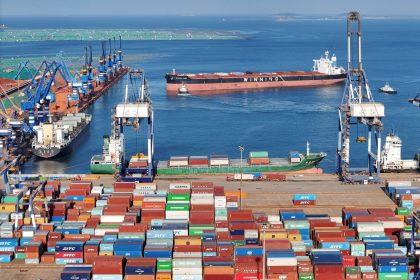Tai Dedicates First Speech as USTR to Greening of U.S. Trade Policy
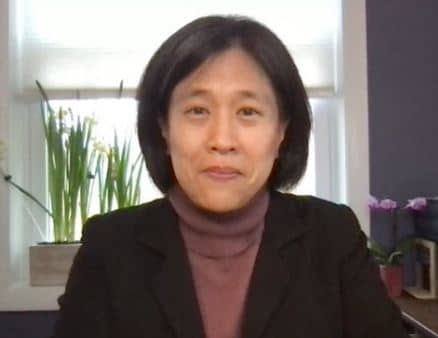
WASHINGTON — On March 17, 2021, Ambassador Katherine Tai was confirmed as U.S Trade Representative by unanimous vote in the Senate. Just a month later, in her first speech as USTR, Tai explained how the benefits of global trade could work as a powerful incentive for environmental improvement, tying market access to institutional reforms.
“Trade policy is a legitimate tool in helping solve the climate crisis,” Tai insisted in remarks delivered to the non-profit Center for American Progress in which she outlined her vision for leveraging trade policy to protect the environment and tackle climate change.
Tai emphasized that protecting our planet would be a top priority, outlining some of the historical barriers to action, and calling for innovative and solutions-oriented ideas from a range of stakeholders to meet the global challenge.
“Trade has a role to play in discouraging the race to the bottom and incentivizing a race to the top,” Tai said.
While over the past 30 years the U.S. has pushed for environmental improvements in trade agreements, no major trade agreement has accounted for the vast global challenges faced today, including climate change. And having a thriving global economy is difficult if commerce is running the environment into the ground.
“The goal is to ensure that we and our trading partners engage in fair competition that does not suppress environmental protection,” Tai said, as she seeks to build new trade opportunities that support environmental and climate change agenda efforts. “Protecting our environment and addressing climate change are core pillars of the administration’s Build Back Better agenda.”
“The view that environmental issues are not an inherent part of trade ignores the reality,” she said, and she looks to follow through on both promises to the planet and worker protections.
“For too long, we believed that trade liberalization would lead to a gradual improvement in environmental protection as countries grew wealthier from increased trade flows,” but instead, the system creates an incentive to compete by lowering standards. She said suppressing environmental protection to attract investment produces a “catastrophic environmental chain reaction.”
And she went so far as to suggest the WTO may be partially to blame.
“The WTO is considered by many as an institution that not only has no solutions to offer on environmental concerns but is part of the problem,” said Tai, adding that WTO agreements lack binding environmental standards that have led to the depletion of the oceans, stripping of forests and contribution to natural disasters around the globe.
“We will only truly address the global scale of the problem through global rules,” Tai said. To that end, Biden will convene 40 world leaders to a summit on climate to underscore the urgency, and economic benefits, of taking collective action.
But Tai said the USMCA is the best “example of our own evolution.” The updated agreement now includes the most comprehensive environmental standards of any U.S. trade agreement, with critical environmental provisions within including strong rules to address wildlife trafficking, illegal logging and fishing, fisheries subsidies, marine litter, and air and water pollution.
Further efforts toward the greening of U.S trade include developing innovative environmental technologies, goods, and services and cultivating strategic international supply chains. “From clean energy, to low-emission vehicles, and other technologies, reliable access to these goods and services will be essential for our transition to net-zero by 2050.”
“Comprehensive action is the only way forward, and this challenge must be at the center of U.S. foreign policy, national security, and economic policy,” said Tai. “USTR sits at the intersection of all three areas.”
“My job is to… push for trade reforms that translate into meaningful change for farmers, ranchers, [others]… not just in the U.S., but around the world,” said Tai. “Our bold collective action can create enormous new economic opportunities and good-paying jobs for all Americans while building the industries of the future.”
















